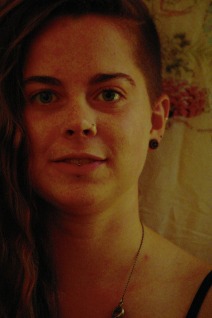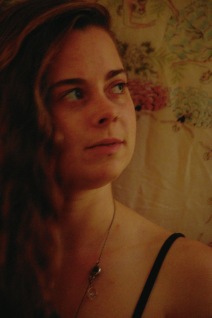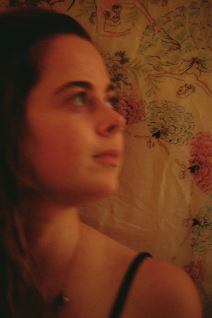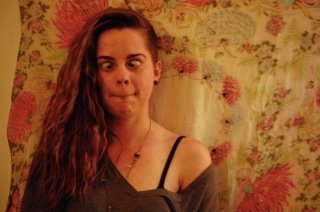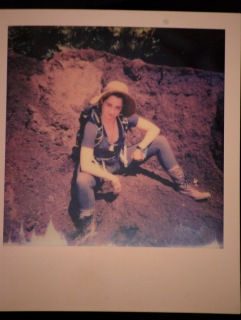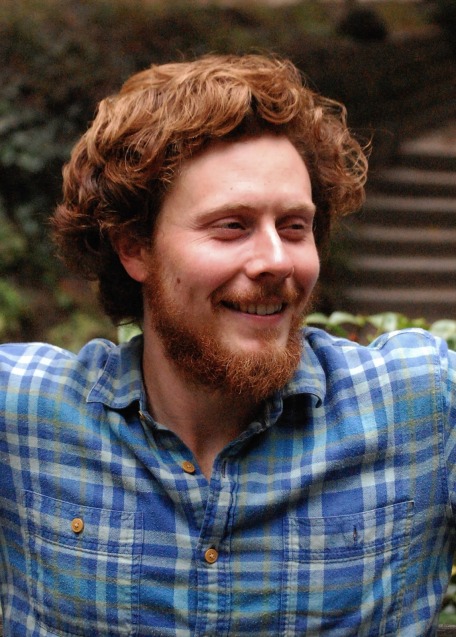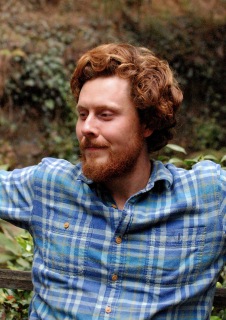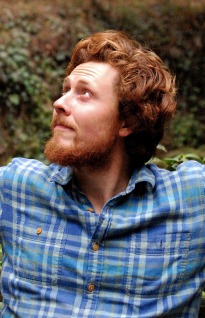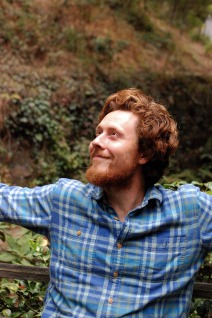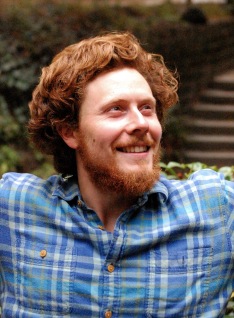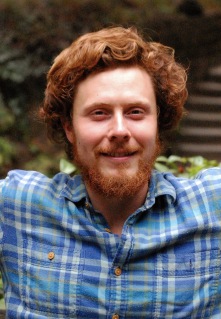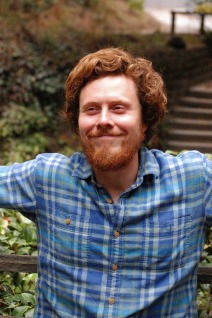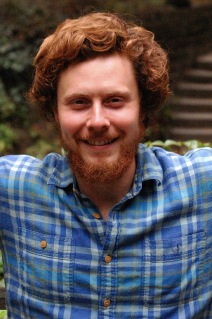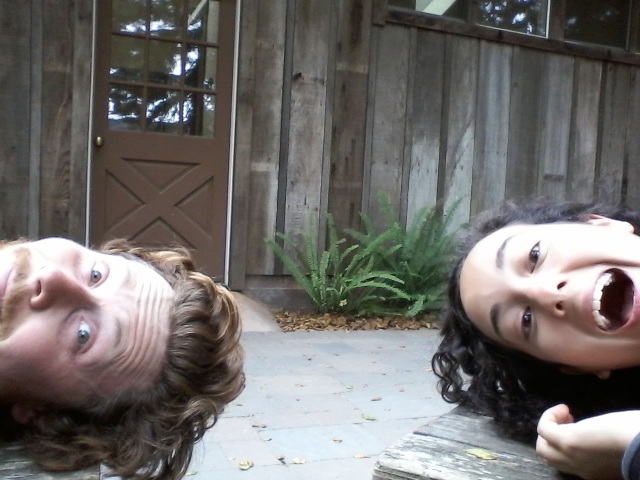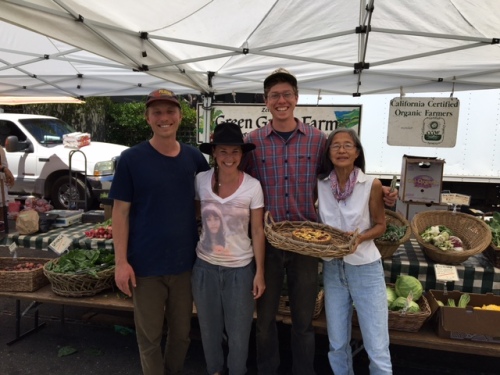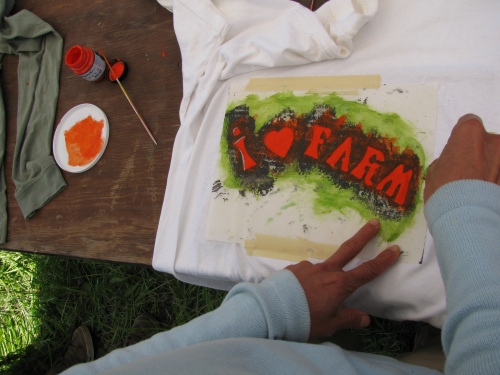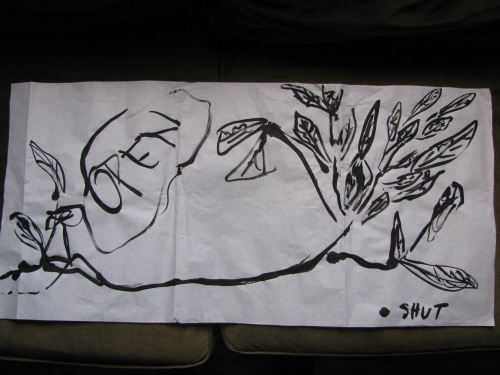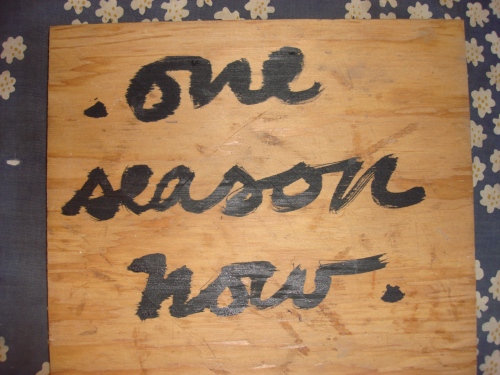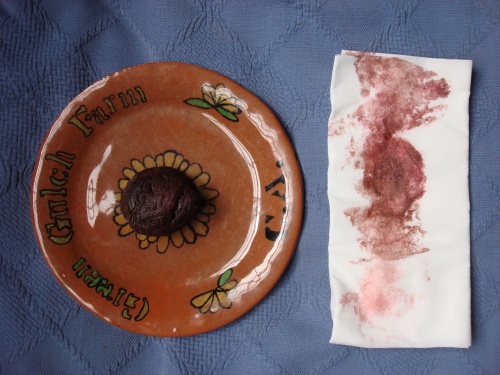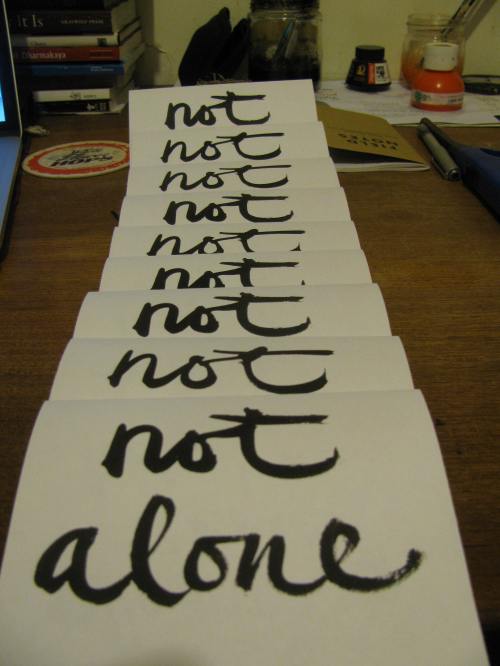Last weekend I was able to spend the afternoon with the charming, intelligent, warm, friendly, thoughtful, delight of a person named Jack. I am quite fond of Jack. He is unceasingly kind and welcoming to everybody who lives at Green Gulch, as well as seemingly every other being he encounters. He is already a living Bodhisattva incarnate. I hope you enjoy getting to know him better!
Catherine: Hello! I am with Jack…oh, can I use your last name?
Jack: Of course
C: Ok, I am with Jack Thomas. Hi Jack.
J: Hi Catherine
C: So, I think a good place to start is to talk about what you’d say you do here, at Green Gulch.
J: *Phew* Um, wow. Well, the first thing that comes to mind is the farm apprenticeship. That’s the primary substance of my day. So, let’s see, that kind of work goes anywhere from 8:30 or 9:00 to in-the-neighborhood-of 4:15, 4:30. And, the apprenticeship, as probably many of the other interviewees have mentioned, is primarily focused on learning the ins and outs of working on and maintaining a small, organic farm. So, at Green Gulch there’s seven acres, approximately, maybe five or six of which are in cultivation at any given time; and we have a pretty small crew, and it consists of, I believe, five staff members, and two–or three–formal leadership figures, and then the rest are apprentices. So, we do the labor. We sow the seed, we plant out starts, we prepare the fields for plantings, we harvest what we have grown, and then…maybe all of this has already been covered *laughs*
C: No! It’s great!
J: Ok! *laughs*
C: I want to hear exactly how you…what you think you do.
J: How I conceptualize this?
C: Yeah.
J: Yeah, so I mean that kind of work, the processing, the very hands on–the creating of the causes and conditions for produce to come out of the earth, and to distribute that produce to the hungry patrons of Mill Valley and San Francisco–I am a part of a team that facilitates that process.
The second thing that comes to mind, which is probably–wow, definitely–the heart and soul of what I do here is practice! So, it pervades…practice pervades work, it pervades the apprenticeship. It is the water through which I swim at Green Gulch, and it begins before work, and it ends after work, when I go to bed. *Pause* I mean, I could talk about the schedule, but really it’s not even confined to morning zazen, or to service. And, it’s not even necessarily confined to Green Gulch, although this is where the wheel of my practice began turning, and is encouraged and supported to turn. But, yeah, I would say, as often as I can remember, every minute of every day, what I am doing is practicing just this life *pause*.
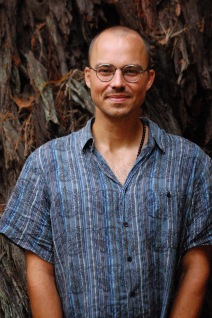 I am trying to navigate between how do I answer this question keeping your audience in mind. Like, I don’t know exactly which concepts I need to articulate more clearly. Or, if it’s just a conversation with you, just telling you how do I…when you say “What do I do here?” and when my answer is practice…I feel like I can go in so many directions with that. Is there anything that is more helpful?
I am trying to navigate between how do I answer this question keeping your audience in mind. Like, I don’t know exactly which concepts I need to articulate more clearly. Or, if it’s just a conversation with you, just telling you how do I…when you say “What do I do here?” and when my answer is practice…I feel like I can go in so many directions with that. Is there anything that is more helpful?
C: I think it’s more the latter. I mean, if people read my blog consistently, I talk about life here pretty frequently.
J: Ok.
C: So, they have some sort of idea of what that means. And, also, I’ve found that a lot of the people who read the interviews actually live here.
J: Sure.
C: So, they know that that means…and, yeah, what I’m personally more interested in is your take on the practices.
J: Oh my god, I could talk about practice all day.
C: Ok, let’s do it!
J: Great! So, ok, I did not have very much of…I did not have a consistent practice before coming to Green Gulch. I was living in Boston, Massachusetts when it began. I was a sophomore in college, at Tufts University, just outside of the city actually, in the Somerville/Medville area–holla!
*Catherine giggles*
And I was really unhappy. I felt very overwhelmed, and that I wasn’t giving school what it deserved. And because school is so expensive, I felt like I was wasting a colossal amount of time and energy and money–my parents’ money, my own time and energy–in an environment that just wasn’t…I didn’t feel like I was thriving even though I was doing lots of potentially fulfilling activities. I was singing acapella, I was a part of this orientation group, this wilderness orientation club that I loved. I had great friends, but there was part of me that was existentially preoccupied, and also incredibly anxious–just trying to juggle classes with social life and acapella and other commitments was totally overwhelming.
And my sister sent me this book, it was Wherever You Go, There You Are by John Kabat-Zinn and I began meditating after that. And–in conjunction with counseling–those were the only two things that made me feel better, like I could calm down. And then the following year, junior year, I started listening to ZenCast, which is a podcast distributed by, and created by, Gil Fronsdale.
C: Oh!
J: Yeah, who was actually just here a few weekends ago, at Green Gulch…and that was my self-medication, in a really big way. I started on car rides, on bike rides, any chance I got, I was listening to ZenCast and to Audio Dharma and to the Alan Watts podcast…and so it was like I was beginning to massage my existential crisis. I couldn’t really reconcile the size of the universe with my existence and my place in the world. I felt meaningless…and those podcasts helped me interface with that kind of thinking in a new way, that actually gave me a little bit of space and room to breathe, and some tools with which I could see those thoughts, and take back or embrace them, make room for them.
And…I would say I really didn’t do too much meditating in Colorado. I don’t think I mentioned that–when I took time off and started listening to these podcasts, I moved to Colorado. And I used to not just listen *giggle* on bike rides or car rides, but I would smoke weed on my aunt and uncle’s roof…
J: …and look up at the vast Colorado night sky, and listen to these podcasts.
C: Ha! That sounds lovely.
J: It was phenomenal. That was the first time I realized that the night sky is actually three-dimensional and that you can see it in 3-D. It’s not just like a sheet with poked holes in it, there’s actually depth. And that blew my f***ing mind.
*Both laugh*
Yeah, then I decided to go back to school and I realized that in order to succeed in that environment I needed some parameters—that I had to incorporate the tools that I had introduced myself to, that Gil had introduced me to–in my daily life, and I started going to the Cambridge Meditation Center on a regular basis for their “35 and Under” sitting group. So, that was weekly, and then I would frequent the Greater Boston Zen Center…infrequently?
*Both giggle*
Like, maybe I went a total of seven times, or six times, over the course of two years. But, I would sit with them on Saturday mornings, I think it was from like nine to noon. We would do periods of zazen and kinhin, and service–with Josh Bartoch, who was great, he’s doing a wonderful job out there. That’s where I first chanted the Makka Hannya Haramita Shin Gyo, and loved it. I’ve been a sucker for ceremony and service since going to Catholic school and high school. Yeah, and the more that I invested myself in these opportunities to meditate, in these sanghas, these little sanghas…*long pause* Yeah, the more I did that, the healthier I felt. So, let’s see, what happened next.
Oh, ok! So I began volunteering…I volunteered at the garden at the Cambridge Insight Meditation Center…and somebody–I think it was my first day volunteering–someone was like, “How do you like this, Jack?” and I said I loved it! I loved working with my body, I loved having my hands in the soil and supporting plant life, and serving this organization, the CIMC, that made such a big difference in my life. And, this–I don’t even know who it was, this angel–was like, “You know that you can do this all the time? There’s this farm that is also a Zen center out in California!” *giggle* And it was like fireworks in my head, because I had always felt…I was born in Redwood City, and lived the first two years of my life in San Mateo. So, being told that as a kid growing up, you know, “actually Jack, you were born in California, you’re from the Bay Area….” I always felt a longing. It’s like I’m a homing pigeon!
*Catherine laughs*
 I just wanted to return! *giggles* Back to the land of origin, back to the motherland…and so, when they said “you could do these two things that you love in your…in the place of your birth” I knew that I would go there, I knew that I would come to Green Gulch. So I applied at the end of my senior year, to come out for a two-week guest stay; and then I ended up getting a sales job and cancelled my guest student stay, and worked at a tech company in Kendall Square, just outside of Boston, across the Charles. It was for eleven months…and about six months into that I realized that…no…well, three months in I was like, “I do not like this!” I mean, it’s challenging work, I can see it being fulfilling for a certain type of person. Like, if someone was really competitive and really a great cultural fit, like very much into sports, and probably a male, and probably straight, like a dude! And it’s such a fun environment if you’re comfortable with all of those things…and I was not. And on top of that, being a call monkey is really hard! Doing telesales is a difficult job. So three months in I was like, “screw this!” and I almost quit, and then I decided to give it more time, to try to tackle this beast. So, six months in, the game had changed, I was doing really well, but knew it wasn’t for me…and I thought, “Ok, I’ll ride this out because it’s not a bad gig, it’s paying the bills. I’ll at least stay here through my lease. I need a contingency plan, I need something else set up for when this window’s, when this tech-job window, is up.” And so I reached out to Green Gulch and I got in touch with Francis Dwyer! *giggle* And he was like, “Yeah, unfortunately, the farm apprenticeship for this upcoming summer is already full, and there’s a wait-list. So, you can’t do that. But you can come out in the summertime and do your two-week guest student stay, and get a feel for whether or not this is the kind of place that you want to spend a serious amount of time.”
I just wanted to return! *giggles* Back to the land of origin, back to the motherland…and so, when they said “you could do these two things that you love in your…in the place of your birth” I knew that I would go there, I knew that I would come to Green Gulch. So I applied at the end of my senior year, to come out for a two-week guest stay; and then I ended up getting a sales job and cancelled my guest student stay, and worked at a tech company in Kendall Square, just outside of Boston, across the Charles. It was for eleven months…and about six months into that I realized that…no…well, three months in I was like, “I do not like this!” I mean, it’s challenging work, I can see it being fulfilling for a certain type of person. Like, if someone was really competitive and really a great cultural fit, like very much into sports, and probably a male, and probably straight, like a dude! And it’s such a fun environment if you’re comfortable with all of those things…and I was not. And on top of that, being a call monkey is really hard! Doing telesales is a difficult job. So three months in I was like, “screw this!” and I almost quit, and then I decided to give it more time, to try to tackle this beast. So, six months in, the game had changed, I was doing really well, but knew it wasn’t for me…and I thought, “Ok, I’ll ride this out because it’s not a bad gig, it’s paying the bills. I’ll at least stay here through my lease. I need a contingency plan, I need something else set up for when this window’s, when this tech-job window, is up.” And so I reached out to Green Gulch and I got in touch with Francis Dwyer! *giggle* And he was like, “Yeah, unfortunately, the farm apprenticeship for this upcoming summer is already full, and there’s a wait-list. So, you can’t do that. But you can come out in the summertime and do your two-week guest student stay, and get a feel for whether or not this is the kind of place that you want to spend a serious amount of time.”
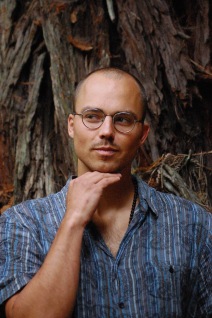 So, I made plans to go to Green Gulch in July in the summer of 2015, and buckled down at work, and just kept my nose to the grindstone. Then I got my two-week break, in the summer, and came to Green Gulch, and was floored. The way I described it at the time was: it was like a puzzle piece being fit into place; after years of looking–I finally, finally!–found a community of people who thought about the world the way that I did, that cared about aligning their daily life with their morals and values. And, who also didn’t shy away from heady philosophical, or psychological, or existential, really abstract conversation. That’s just where my mind just gravitates, like I’m always…like I’ll be at a bar with friends, and I’ll be like “How are you?”, and they’ll say, “Oh, I’m doing this and this and this and this,” and I’ll be like, “No, how are you?” *giggle* Like, “Tell me about yourself, let’s be real!” And I always felt like I made people uncomfortable going for very substantive conversation, in settings that maybe were not designed for that. It was a misalignment in that way…but not at Green Gulch. That is the bread and butter of our relationship here–being real with each other, saying what’s on our heart and mind, really, and immersing ourselves in the cosmic mystery…also, the mundane mystery.
So, I made plans to go to Green Gulch in July in the summer of 2015, and buckled down at work, and just kept my nose to the grindstone. Then I got my two-week break, in the summer, and came to Green Gulch, and was floored. The way I described it at the time was: it was like a puzzle piece being fit into place; after years of looking–I finally, finally!–found a community of people who thought about the world the way that I did, that cared about aligning their daily life with their morals and values. And, who also didn’t shy away from heady philosophical, or psychological, or existential, really abstract conversation. That’s just where my mind just gravitates, like I’m always…like I’ll be at a bar with friends, and I’ll be like “How are you?”, and they’ll say, “Oh, I’m doing this and this and this and this,” and I’ll be like, “No, how are you?” *giggle* Like, “Tell me about yourself, let’s be real!” And I always felt like I made people uncomfortable going for very substantive conversation, in settings that maybe were not designed for that. It was a misalignment in that way…but not at Green Gulch. That is the bread and butter of our relationship here–being real with each other, saying what’s on our heart and mind, really, and immersing ourselves in the cosmic mystery…also, the mundane mystery.
But anyway, I felt an immediate resonance, and I went back to Boston and started…I set up a little altar in my room, and started sitting a period of zazen every morning, before work *giggles* They have these little pamphlets, the prayer pamphlets, so I would chant the prayer pamphlet. So, I memorized those, and I would read from Zen Mind, Beginner’s Mind, and I’d burn incense, and it was a very beautiful morning ritual. Actually, I came back from Green Gulch, made this altar, and then my first day back to work they offered me a promotion. And…*chuckle* I had to tell them “Actually, I’m quitting” *giggle* “I’m so sorry!” And I thanked them, and they were very supportive. It was a phenomenal place to work! The company is called InsightSquared. I felt like their professional development was off the charts. I felt very well taken care of. My career was a priority to them. They wanted me to succeed as not just a bottom-level call monkey, but they wanted me to develop to be a contributing member of the team for the long term. That was the tact that they took with all of their sales people. So, in that regard I just…I have nothing but great things to say about that company.
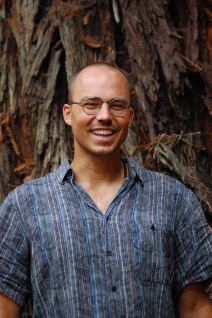 And it wasn’t a fit, so they gave me big hugs and sent me on my way and then I spent the next month enjoying my time with friends and meditating. That was really the turning point in my practice, when it became a daily exercise. I began meditating regularly, I began feeding my brain, and began paying attention to what I was digesting–like through visual media and in written word. That summer—I guess my lease was up in August, so that summer I spent with friends in Acadia National Park and at Walden Pond and in Portland, Maine, and then once I moved out I began a cross-country road trip that the final destination was Green Gulch.
And it wasn’t a fit, so they gave me big hugs and sent me on my way and then I spent the next month enjoying my time with friends and meditating. That was really the turning point in my practice, when it became a daily exercise. I began meditating regularly, I began feeding my brain, and began paying attention to what I was digesting–like through visual media and in written word. That summer—I guess my lease was up in August, so that summer I spent with friends in Acadia National Park and at Walden Pond and in Portland, Maine, and then once I moved out I began a cross-country road trip that the final destination was Green Gulch.
Then the journey really took a turn, and s**t got so real. Like living in this little community, this village at Green Gulch Valley–probably the best analogy that I’ve come across for livelihood and practice here is–I think it’s a Zen saying, or maybe just a Buddhist analogy for Practice Periods, actually–*giggle* Its going to be literally like Catherine: “tell me about your practice” *both laugh* Jack: life story. Wall of text!
C: Yeah, but that’s okay! This is great!
J: Ok
C: I’m kind of relieved that I don’t have to ask a whole bunch of questions. You’re just doing it!
J: Ok, great! *giggles* Ok! *laughs*
*Catherine is laughing a lot*
J: Ok, so for Practice Periods they say it’s like being rocks in a tumbler, where we bump up against each other in such close quarters, and our edges soften. I would say that the first four months of practice and work practice and immersion in the container, they felt a lot like that. It took me forever to get my bearings, and I didn’t know what my practice looked like. I continued to love sitting zazen, I continued to….*sigh* I feel, like, ecstatic during services. So, loved that, and began trying out dokusan and practice discussions. So, in terms of formal practice, I really liked that, but didn’t understand or know how to take my practice with me from the zendo into the rest of life. I was really blessed in my first…it was October, November, December, January…my first four months living here I had a roommate—and one of my really good friends, actually—they were like…they influenced me in a really big way, and showed me, everyday, the many ways that practice can be something that we carry with us all day. So that became a focus of mine, like “Ok, I feel very…I’m holding myself in my body intentionally, and it feels very good in zazen. And I’m paying attention to the quality of my thoughts and studying the self in the zendo.” And then I began, with their guidance, and with the support of this community, to do the same outside of the zendo, at work…and in social situations, started to…like, social busyness…and…why is that? Why am I acting the way that I’m acting around these people, and why do I act differently around other people? It just felt like layers and layers of my habits, I could finally see all of the bottoms that are pressed dictating my unconscious actions in the world—and suddenly, I could see the machinery behind that. So, that continues to be my practice today—paying attention to, and becoming very intimate with, this person. I would say another huge practice would be the practice of love, and of self love, which actually is a practice of liberating all beings, of loving all beings.
C: Ok.
J: I have…these are intentions–practice-oriented intentions–for the month of September.
C: That’s funny, Duras did the same thing.
J: Yeah.
C: She talked about it in her interview too.
J: No kidding!
C: Yeah.
J: So I’m…Duras’ intentions inspired mine.
C: Oh!
J: She asked–we had an email exchange–and she asked if had any intentions for this month, and this was my response to her. The first is, “At every opportunity, with great perseverance, remember and return, whole-heartedly, to the seat of awareness.” Which is also the observer position, and I think of it as being…when you hear Reb talk about the buddha-mind seal or the buddha-mind, I think all of those things are the same. It’s the witness to all thoughts and mental objects and experience. So, return to that place at every time that I remember to. “Let go of mental objects; let form, formations, perceptions, and consciousness swirl around me, and neither touch nor turn away from them, like the eye of a storm.” So, that’s one. The next one is: “No hesitation. Offer myself in service of others, in service of practice, in service of each moment. Do this with dignity, sincerity, and humility, characterized by”– and this is quoting the I-Ching–” a passively firm correctness”. That is from Hexigram-2, “Receptivity”. The next is: “Accept and pay attention to guidance, and be a student of life”. The fourth is: “Realize peaceful and righteous persistence”–again this is from Hexigram-2–“as I endeavor to take good care of this person, with an emphasis on eating in moderation, paying special attention to sugar, peanut butter, bread, and second helpings”–We could say more about that–“with emphasis on getting good sleep regularity and following through on my commitments to the farm, to friends, to 12-Step work, and to family”. And, there are 2 more; one is “Be receptive like the Earth”–this is all from Hexigram-2–“be receptive like the Earth, like a hard-working mare, like an open doorway”. And then this next bit is from a poem that I love by Rumi: “Be receptive like a reed flute for Your breath”–capital “Y” like the Beloved–“like wax for the buddha-mind seal”. And then the last one, the last intention for practice, is actually inspired by Dina! My dear friend!
*Catherine giggles*
It is: “To love outwardly endlessly”. So, maybe that’s all I’ll say….In response to your first question!
*Both laugh hard*
C: That was great!
J: *giggling* good!
C: I know so much more about you! Something that I think would be interesting would be to know more about what you feel about working outside and working on the land and working on the farm.
J: Mmmm, mmmhmmm. *long pause* You’re saying you don’t want to know more about practice?
*Both giggle*
C: I think you’re super cute but—*laughs*—I’m thinking let’s delve into some different areas.
J: Yeah, we can cover some different territory, so to speak.
*Catherine laughs*
J: So…wow, my relationship with the land has changed since arriving at Green Gulch. I’ve always had an appreciation for the Earth, going back to when I was a kid, I loved being outdoors. My family de-emphasized small screen media…like, I definitely watched movies growing up, but there was a cap on the amount of television time I had during the day. We had a swimming pool, I was obsessed with catching bugs, all things outdoors–that was my playground, was the forest behind my house. And then, when I got a little older I went to a summer camp in Estes Park, Colorado! Holla!
*Catherine giggles*
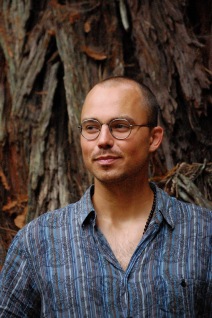 And so for a month every year I developed a sense of awe…and a big part of my soul felt connected to the mountains, because that was my safe haven for…I think I was a camper there for five years, during some really difficult summers in my life, and so it was—I mean that place formed me in really important ways. Maybe one of the most important ways it informed me was in giving me an appreciation or the Earth that I wouldn’t have had. So, I see that coming up at Green Gulch, like the difference between my office job, where I had two huge computer screens in my face all day–I would have a head-ache going home at the end of work. And then ironically, in order to escape from the headache or feeling drained at the end of the day–in order to soothe myself–I would watch Netflix, which is another screen. So, my exposure to nature was limited. And, now, I spend the vast majority of my time outdoors–the vast majority of my waking hours outdoors. Like I said, from 9:00 to at least 4:15, 4:30–hands firmly planted in the Earth, and getting sweaty underneath the sunshine, or more often, muffled in the mists of this North Bay Green Gulch valley.
And so for a month every year I developed a sense of awe…and a big part of my soul felt connected to the mountains, because that was my safe haven for…I think I was a camper there for five years, during some really difficult summers in my life, and so it was—I mean that place formed me in really important ways. Maybe one of the most important ways it informed me was in giving me an appreciation or the Earth that I wouldn’t have had. So, I see that coming up at Green Gulch, like the difference between my office job, where I had two huge computer screens in my face all day–I would have a head-ache going home at the end of work. And then ironically, in order to escape from the headache or feeling drained at the end of the day–in order to soothe myself–I would watch Netflix, which is another screen. So, my exposure to nature was limited. And, now, I spend the vast majority of my time outdoors–the vast majority of my waking hours outdoors. Like I said, from 9:00 to at least 4:15, 4:30–hands firmly planted in the Earth, and getting sweaty underneath the sunshine, or more often, muffled in the mists of this North Bay Green Gulch valley.
Something that’s maybe unique to this summer and to this internship is this subtle attunement to the weather, feeling—certainly earlier in the summer–my mood would reflect the environment around me. On sunny days, high-energy, and on cloudy days, more mellow vibes. Certainly, that’s true because I’m working on the lettuce team. There are three of us: It’s Emila, the farm elder; and Zach, who’s a staff member, he was an apprentice last summer; and myself. Because lettuce is so sensitive to sunshine, to direct sunlight, on the mornings that the sun was not shrouded by cloud we were hustling. I mean we would ramp our production up like three-times as quickly on sunny days, so really my material reality, like the way that I would think and act, was dictated by the weather. And continues to be.
Another thing I would say is that the same awe that I would have of mountains in Colorado I have for the generative power of the Earth. I feel, at this point, minimally involved in food production. Even though I know that without the work that the farm crew does there would be no produce–like, we wouldn’t have anything to hand over to customers at a farmers’ market. We really do–I don’t even know the percentage…it’s…we do a fraction of the work involved in creating the substance, in creating the value. It’s more like we arrange, we do the logistics. Like, we’ll do transport, we’ll make sure the seeds get to the right place and that they get watered…but the Earth! The Earth and the sky and the sunshine, that is where all of the power is coming from, that is where the real creativity happens…and it’s astounding. I mean we are just flooded by produce. We’re hustling to process the quantity of greenery that is overflowing–like, it’s flooding us–out of our fields. I have no idea how that happens. I don’t really understand, still, how a seed that is so tiny can create ears of corn, or a chard plant from which we harvest for weeks. So, that’s miraculous and mysterious.
C: Can you see yourself doing farming work if you were to leave Green Gulch?
 J: I can, yeah. I thought about this because there are some people on this apprenticeship crew–the 2016 season–that think like farmers, and I’m recognizing that while I have a lot to offer as a member of this crew, I don’t think the way that a farmer thinks…yet, at least. I think it comes naturally to some of the people that I work with. But I do derive great–I mean immense–joy from this labor. I don’t know if I would want to be the captain of a farm, like lead that initiative solo, but I could be a partner in a farm endeavor, for sure. I would really like that…because there’s something about the manual labor, about working really hard, and getting sweaty with a crew of other people, and being outdoors all day…totally invested in a cause I care about, which is creating food, which is an essential need–for all forms of life, but specifically humans, supporting healthy human life in a way that is healthy for my body. It’s exercise, so I’m taking care of this person in a way that’s sustainable for the planet. It’s organic, it’s…we’re not using very many–well, any–chemicals. No pesticides, minimal amounts of machinery, and that’s important to me too. So, yeah, if there were an opportunity to work on an operation like Green Gulch–in that it’s a small, organic farm–elsewhere, then yes. I could totally see myself doing this.
J: I can, yeah. I thought about this because there are some people on this apprenticeship crew–the 2016 season–that think like farmers, and I’m recognizing that while I have a lot to offer as a member of this crew, I don’t think the way that a farmer thinks…yet, at least. I think it comes naturally to some of the people that I work with. But I do derive great–I mean immense–joy from this labor. I don’t know if I would want to be the captain of a farm, like lead that initiative solo, but I could be a partner in a farm endeavor, for sure. I would really like that…because there’s something about the manual labor, about working really hard, and getting sweaty with a crew of other people, and being outdoors all day…totally invested in a cause I care about, which is creating food, which is an essential need–for all forms of life, but specifically humans, supporting healthy human life in a way that is healthy for my body. It’s exercise, so I’m taking care of this person in a way that’s sustainable for the planet. It’s organic, it’s…we’re not using very many–well, any–chemicals. No pesticides, minimal amounts of machinery, and that’s important to me too. So, yeah, if there were an opportunity to work on an operation like Green Gulch–in that it’s a small, organic farm–elsewhere, then yes. I could totally see myself doing this.
C: Would you say…Im curious if you can identify certain passions that you have.
J: Mmmm. Yeah, I mean, I can. I have…are you just making sure that it’s still working?
C: Yeah, usually I do the interview for about 45 minutes…so that’s 9 more minutes.
J: Cool, ok.
C: *laughs* Go! *laughs* It’s so great! It’s so great.
J: Passions! Yeah, I’m passionate about this practice! I…*pause* it has been transformative for me. I feel…*pause* like I’ve come back to life–in living at Green Gulch and working here–in a way that I didn’t think was possible. For so much of my life I was…numb. To myself, and to how I felt, to my emotional life. I didn’t feel like who I was was acceptable, and so I was constantly finding ways to repress difficulty, and keep my head above water…and present as a very happy, successful person. Through meditation and Zen Buddhist practice at Green Gulch I feel awakened to all of myself, and I feel a capacity for intimacy with other people that I did not know that I was capable of. And I am so passionate about honoring…I am so passionate about helping other people help themselves, in a way that—like, if there are kids out there, or if there are adults out there, that are struggling in any way similar to how I was struggling, and if they find their way into this community, then yeah I want to help them in a way that I wish someone had been like, “Jack! Let me help you!” It’s difficult because I think, on the one hand, getting from where I started to where I feel now is the kind of journey that an individual has to choose for themselves, and it’s the effort an individual has to make alone. And by alone I mean that they have to make the decision to show up for this work again and again and again. And it goes without saying, none of what I did happened independently. All of it was through the support of family and friends and the Green Gulch community…and infinite causes and conditions, literally. I can’t name the all. But, yeah, I feel passionate about helping people with the tools that helped me–with mindfulness, with 12-step programs, with Zen Buddhist practice–through Dharma, essentially. Because I’ve seen…it transformed me and I have no doubt that it will help other people. So, I feel passionate about that.
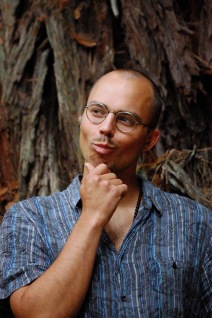 I feel passionate about continuing to do this work with myself, which I have a feeling is going to last until the day that I die, and maybe into infinite future lifetimes *laughs*. There’s this quote that goes…Wait! Let me get out my (journal).
I feel passionate about continuing to do this work with myself, which I have a feeling is going to last until the day that I die, and maybe into infinite future lifetimes *laughs*. There’s this quote that goes…Wait! Let me get out my (journal).
C: Ok.
J: *sighs*…It’s by Winston Churchill.
C: Ok.
J: I quote this a lot! *giggle*
C: Ok! *giggle*
J: Let’s see…”Every day you make progress, every step maybe be fruitful, yet there will stretch out before you an ever-lengthening, ever-ascending, ever-improving path. You know you’ll never get to the end of the journey, but this, so far from discouraging, only adds to the joy and the glory of the climb”. Yeah, I feel passionate about continuing to study myself. And to open myself to myself and to other people, to walking the path of practice, essentially. And I feel really passionate about love!
C: Mmmhmmm!
J: I feel like that has been the key to transformation for me. Like learning to accept myself unconditionally, and learning to love other people without condition. Like, whoever you are and whatever you’re doing with me, I will love you. Period. So, when I heard that–this came from Dina too–this idea that, yeah, there are difficult situations and there are people who are hard to work with, but, one: who is it who’s really hard to work with? Is it the actual person? Or is it my own internal landscape and what I’m projecting into that person, and what’s coming up for me is difficult? So that is a pivot that never occurred to me, and that’s why it’s a practice of self-love. Because I’m learning to be spacious and gracious with the parts of myself that I hate or reject or find difficult–and project into other people. So, she introduced me to that pivot, and then to the notion of love, period. Love, no matter what.
And, practicing that put all of my religious exposure into a new context. Like, looking at The Bible now, and being like, “Oh! Jesus wasn’t f***ing around” He was serious! And I’ve met people that do this practice, and their lives are changed…and it’s the same thing with the Bodhisattva precepts, or with all of Dharma. This practice of love has made me realize that if you actually try to exercise the admonitions and encouragements of these spiritual sages–all of our ancestors–it works! With time, my edges have softened. I feel a tenderness and care for myself that I didn’t a year ago when I arrived here. I feel an acceptance and an inclusion…I keep coming back to this word–an intimacy with other people, a dependence–an interdependence with other people–that I did not feel before this. I feel very passionate about continuing to do that work and to open to my life, and to open to love, unceasingly.
C: Good, that’s great. Yeah! We’re at 45 minutes.
J: Nice!
C: Well, I try not to go past 45 minutes because it takes me like…
J: Forever?
C: …three-times as long to transcribe it.
J: Yeah
C: So…*laugh*
J: Great!
C: But thank you very much!
J: Thank you, Catherine! Always nice spending time with you!
C: Yes! Always nice spending time with you!
J: Thanks for doing this project.
C: You’re welcome.
J: Yeah, I’m so excited to read everyone else’s interview.

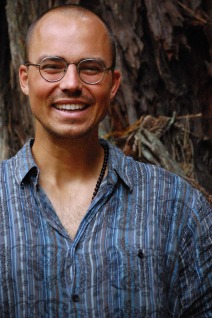
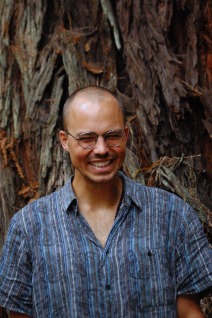
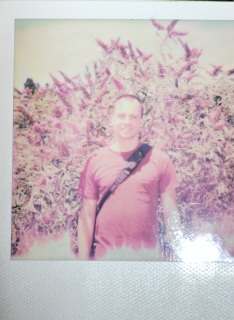
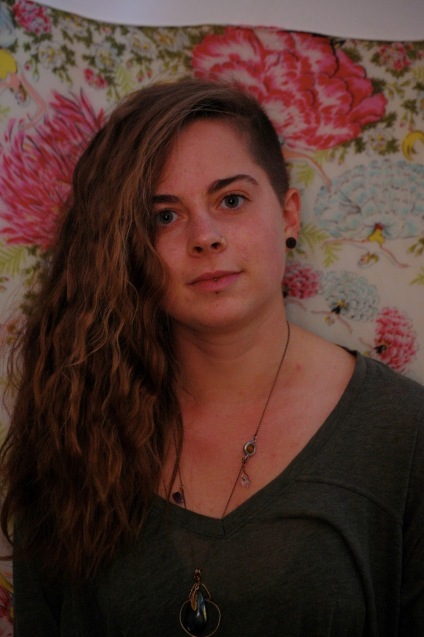
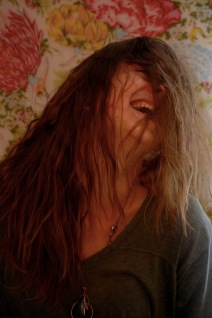
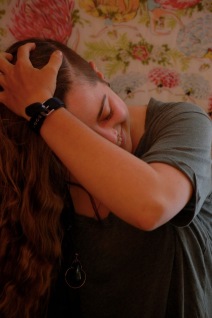
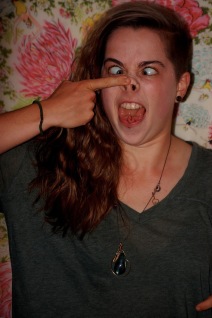

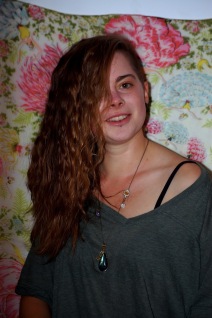
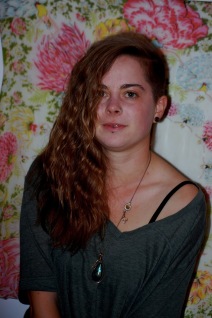
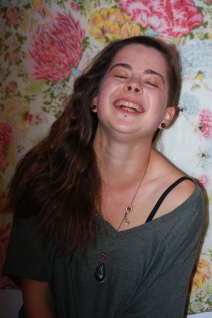
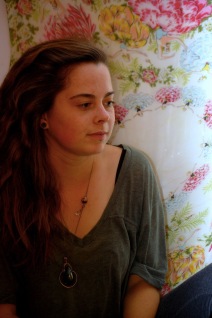
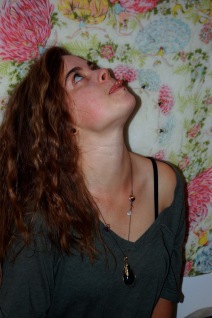
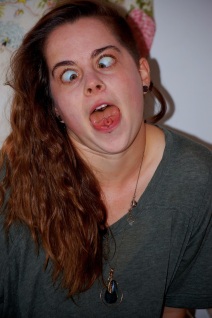
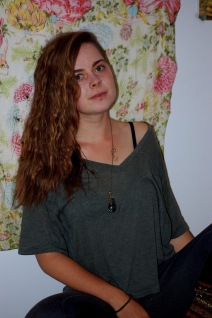
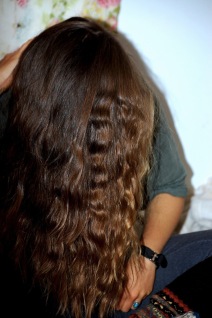
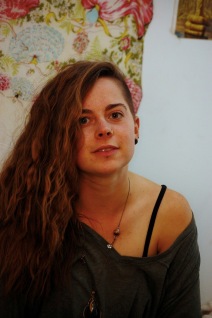
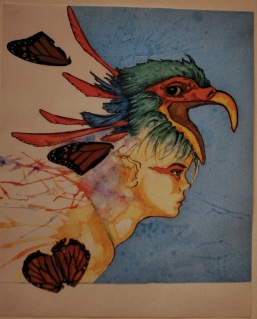
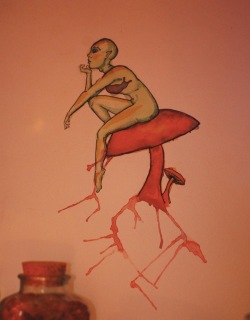
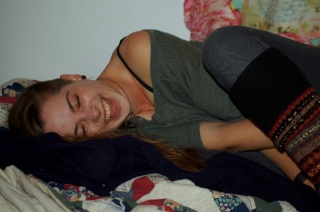
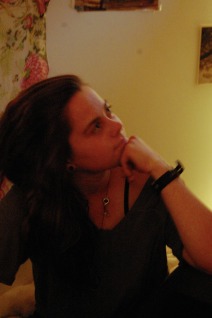
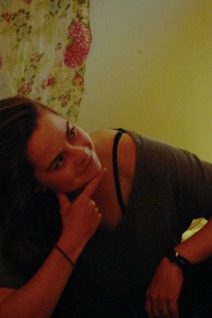
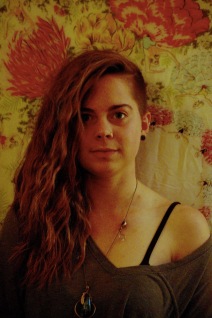
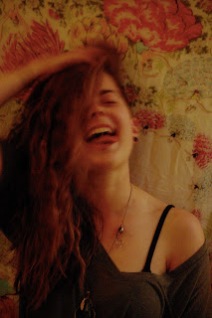 And when you die, the leaf falls off, which is your body, but then your energetic self just rejoins the branches. And perhaps that energetic self has memory and, as with everything, there is constant evolution and change—and that memory decides where to go to in its next evolution and change. And perhaps in our existence in this realm we lose contact with that memory, and we become confused, simple organisms of desires and suffering. Except for some of us! I’ve met many people who have some sort of contact with that energy and those memories, and I think that somewhere I do have a belief that all of that is real.
And when you die, the leaf falls off, which is your body, but then your energetic self just rejoins the branches. And perhaps that energetic self has memory and, as with everything, there is constant evolution and change—and that memory decides where to go to in its next evolution and change. And perhaps in our existence in this realm we lose contact with that memory, and we become confused, simple organisms of desires and suffering. Except for some of us! I’ve met many people who have some sort of contact with that energy and those memories, and I think that somewhere I do have a belief that all of that is real.
